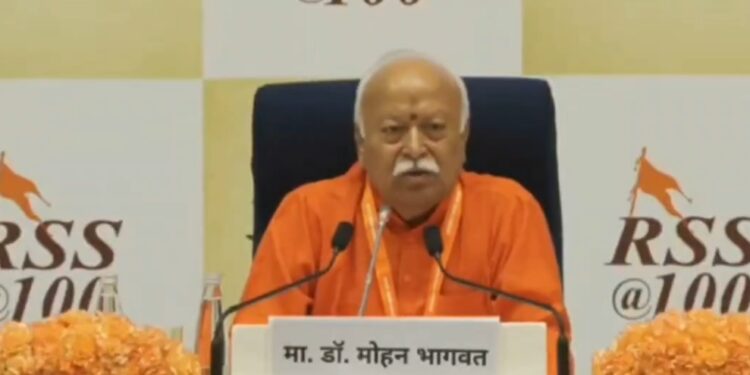In a landmark statement marking the centenary of the Rashtriya Swayamsevak Sangh (RSS), its chief, Mohan Bhagwat, called on Indian families to adopt a three-child norm.
His remarks, delivered during a press conference in New Delhi, come at a time when India’s fertility rate has dipped below the replacement level, raising concerns about long-term demographic stability.
Bhagwat emphasised that while India’s population policy suggests a fertility rate of 2.1 children per woman, the practical implications of this figure are flawed. “You can’t have 0.1 of a child,” he quipped, citing medical advice that a family must have three children to meet the replacement threshold.
According to the UNFPA’s 2025 State of World Population Report, India’s fertility rate has declined to 1.9—below the level required to maintain population size without migration.
Referencing India’s population policy framed in 1998 or 2002, Bhagwat noted that it was designed to prevent any community’s population from falling below the 2.1 mark. He argued that demographic science supports a three-child model to ensure societal survival and prevent the gradual extinction of communities.
Bhagwat also linked the three-child norm to family health and child development. “Marrying at the right age and having three children ensures that both the parents and children are healthy,” he said. He emphasised that while population growth can be a boon, it must be managed to prevent it from becoming a burden. “We have to feed everyone ultimately,” he added, underscoring the importance of balanced growth and responsible parenting.
🌍 India’s Youth Advantage
Despite the fertility dip, India retains a strong youth base:
- 24% of the population is aged 0–14
- 17% falls within the 10–19 bracket
- 26% is aged 10–24
This demographic dividend, Bhagwat implied, must be nurtured through stable family structures and forward-looking policies.
This isn’t the first time Bhagwat has advocated for a three-child policy. In December 2024, during an event in Nagpur, he made similar remarks, citing demographic science and societal survival. His consistent messaging reflects the RSS’s broader concern with cultural continuity and national resilience.
Bhagwat’s comments have sparked debate among demographers, policymakers, and citizens. While some view his stance as a pragmatic response to declining birth rates, others caution against blanket prescriptions that may not account for regional, economic, and personal factors.




























